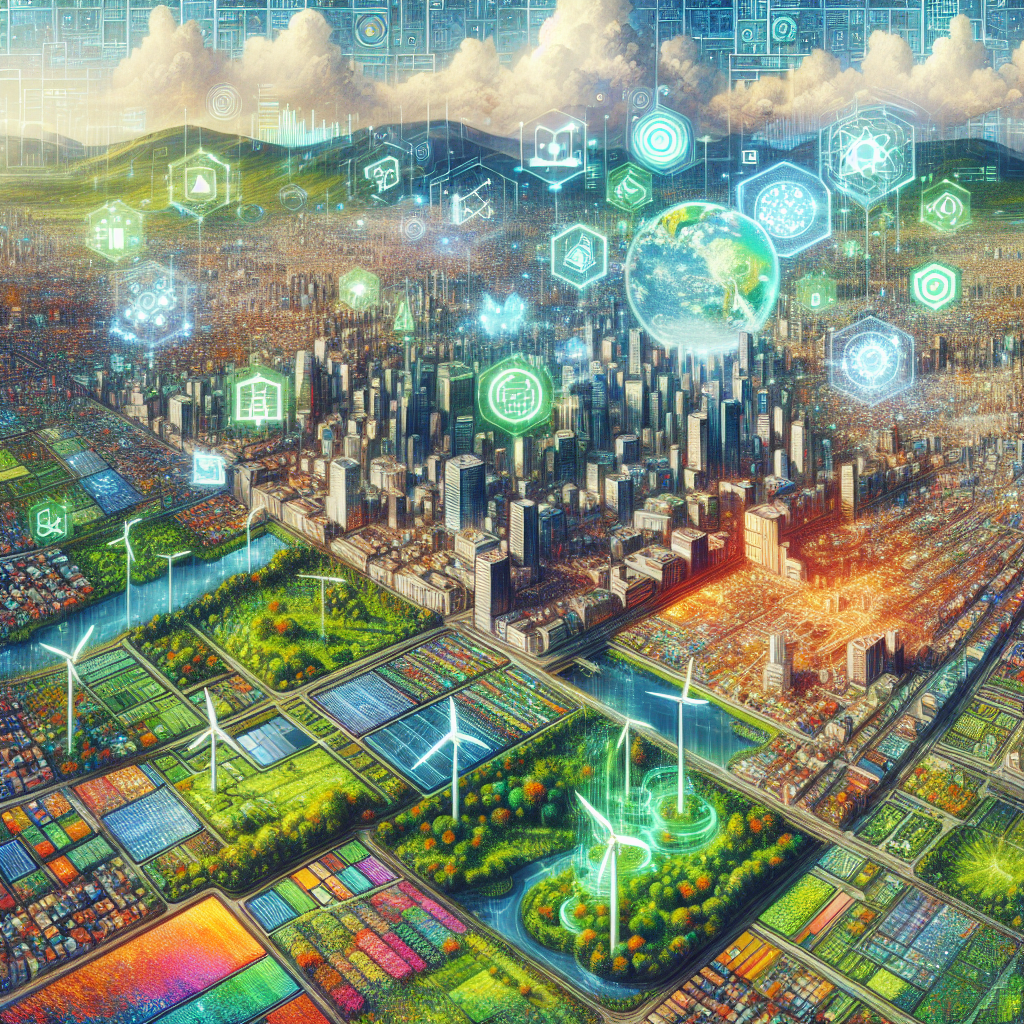In recent years, the rapid growth of urban populations has posed significant challenges for sustainable urban planning. With more people moving to cities and increasing demands on infrastructure, resources, and services, city planners are under pressure to find innovative solutions to ensure a sustainable and resilient future for urban areas. Artificial intelligence (AI) is increasingly being seen as a powerful tool to help address these challenges and drive sustainable urban planning strategies.
AI-driven strategies for sustainable urban planning involve the use of advanced technologies such as machine learning, data analytics, and predictive modeling to optimize urban development, improve resource management, and enhance the quality of life for residents. By leveraging AI, city planners can make more informed decisions, identify trends and patterns, and create data-driven solutions to complex urban challenges.
One key area where AI is making a significant impact on sustainable urban planning is in transportation. AI-powered systems can analyze traffic patterns, predict congestion, and optimize public transportation routes to reduce emissions and improve traffic flow. For example, the city of Barcelona has implemented an AI-driven system that uses data from GPS devices and sensors to monitor traffic in real-time and adjust traffic lights to improve traffic flow and reduce emissions.
Another important application of AI in sustainable urban planning is in energy management. AI algorithms can analyze energy consumption data, identify inefficiencies, and optimize energy usage in buildings and infrastructure. By implementing smart energy systems powered by AI, cities can reduce energy costs, lower carbon emissions, and improve overall sustainability.
AI can also play a crucial role in waste management and recycling. By analyzing data on waste generation and collection patterns, AI systems can optimize waste collection routes, reduce landfill waste, and increase recycling rates. For example, the city of San Francisco has implemented an AI-powered system that uses data from waste bins to optimize collection schedules and reduce costs.
In addition to transportation, energy, and waste management, AI can also be used to enhance urban planning and design. By analyzing data on population growth, land use, and infrastructure development, AI systems can help city planners create more efficient and sustainable urban environments. For example, AI algorithms can analyze satellite imagery to identify areas for green spaces, parks, and public amenities, creating more livable and sustainable cities.
Despite the potential benefits of AI-driven strategies for sustainable urban planning, there are also challenges and concerns that need to be addressed. One key issue is data privacy and security, as AI systems rely on vast amounts of data collected from sensors, cameras, and other sources. City planners must ensure that data is securely stored and protected to prevent misuse or unauthorized access.
Another challenge is the potential for bias in AI algorithms, which could lead to unfair or discriminatory outcomes in urban planning decisions. To address this issue, city planners must carefully evaluate and test AI systems to ensure they are fair, transparent, and accountable.
Additionally, there is a need for greater public awareness and engagement in the development and implementation of AI-driven strategies for sustainable urban planning. Residents must be informed about how AI is being used in their cities, and their input should be incorporated into decision-making processes to ensure that AI technologies benefit all members of the community.
Overall, AI-driven strategies have the potential to revolutionize sustainable urban planning and create more resilient, efficient, and livable cities. By harnessing the power of AI, city planners can make smarter decisions, optimize resources, and improve the quality of life for residents. As technology continues to advance, the role of AI in sustainable urban planning will only grow in importance, shaping the future of cities around the world.
FAQs:
Q: How can AI help cities reduce carbon emissions and combat climate change?
A: AI can help cities reduce carbon emissions by optimizing transportation routes, improving energy efficiency, and enhancing waste management practices. By analyzing data and identifying opportunities for optimization, AI systems can help cities achieve their sustainability goals and combat climate change.
Q: What are some examples of cities using AI for sustainable urban planning?
A: Barcelona, San Francisco, and Singapore are among the cities that have implemented AI-driven strategies for sustainable urban planning. These cities have used AI to optimize transportation, energy management, waste collection, and urban design to create more efficient and livable urban environments.
Q: What are the key challenges of implementing AI in urban planning?
A: Some key challenges of implementing AI in urban planning include data privacy and security concerns, potential bias in AI algorithms, and the need for greater public awareness and engagement. City planners must address these challenges to ensure that AI technologies are used ethically and effectively in urban planning processes.

